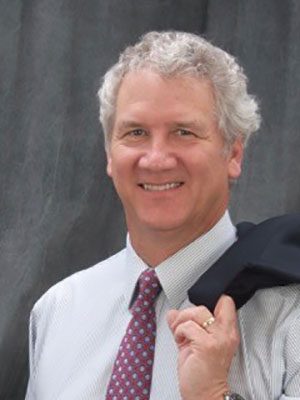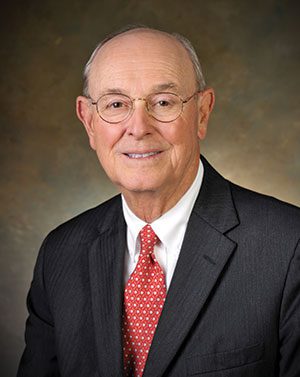I’ve been singing the praises of servant leadership for many years. Simply put, if you serve your people well — give them direction and support as needed, praise them when they succeed and redirect them when they get off track — they will take care of your customers. Your happy customers will tell their friends about you, which will increase your bottom line and please your stakeholders. Servant leadership is the best way to create both great results and great human satisfaction.
For research for an upcoming book, I asked 41 people I consider servant leaders — authors, experts, and practitioners from many different backgrounds and industries — to share their stories, philosophies and advice. Here are the views of those four exemplary leaders.

president emeritus, Southwest Airlines
Colleen Barrett, president emeritus, Southwest Airlines
For more than 40 years, all of the leaders at Southwest Airlines have tried to model servant leadership. Herb Kelleher, our founder, led the way clearly — although I don’t think he knew what the expression servant leadership meant until we told him. For over four decades Herb and I have said that our purpose in life as senior leaders with Southwest Airlines was to support our people. Our entire philosophy of leadership is quite simple: treat your people right, and good things will happen.
Not only do we serve and care about our people, we also empower them to use common sense and good judgment. Yes, we have written rules and procedures, but our people know the rules are guidelines. We can’t write a rule for every scenario they’ll run into when they are dealing with the public. Our folks are marvelous about handling all kinds of situations with our customers.
For example, we have had pilots pay for hotel rooms when customers were stuck for the night in a different city than they had intended. They don’t call and ask if they’ll get reimbursed. They do it because that’s who they are. When our people realize they can be trusted and won’t get in trouble for bending or breaking a rule, they want to do their best.
We try in every way to let our employees know they are important and empowered to make a positive difference on a daily basis. Servant leadership isn’t soft management — it’s simply the right thing to do.

brigadier general,
U.S. Army (Retired)
Jeff Foley, brigadier general, U.S. Army (Retired)
Servant leadership contributes to a winning culture for the U.S. Army. During my 32-year career as a soldier, I learned five key ways servant leaders shape Army culture.
They commit to lead. The oaths, values and creeds of the U.S. Army are not just words. They drive home the commitment to serve fellow soldiers and our nation — causes greater than ourselves. They are the foundation for the Army’s culture.
They listen. One of the most profound leadership skills in any organization is the ability to listen. You can’t help anyone if you don’t listen with the intent of understanding.
They develop leaders. The Army develops soldiers into leaders in three ways: formal training and education of professional soldiers, leader development programs inside every Army unit, and on-the-job coaching and mentoring by all officers and noncommissioned officers.
They communicate purpose and intent. Soldiers at all levels need to understand the purpose and intent of their boss. From sergeants leading small teams to commanders leading large operations, Army leaders are visionaries who communicate their expectations with precision — and then serve their people to ensure their success in meeting those expectations.
They build trusted relationships. Building trust trumps all else when it comes to leadership. Servant leadership comes alive when mutual trust exists between leaders and followers. When soldiers know their leaders have their backs, they will do anything for them.
Let me share a profound day in our recent military history that drives home this concept. The date was July 4, 2008. The location was Camp Victory, the U.S. military headquarters in Baghdad, Iraq. On that day, 1,215 soldiers, sailors, airmen and marines raised their right hand and pledged to continue defending our country in the largest re-enlistment ceremony since 1973. Why? I believe the servant leadership environment created by soldiers of all ranks was a principal contributor.

James Blanchard, former president and CEO, Synovus Financial (Ed. Note: No relation to the author.)
The seeds of the servant leadership culture at Synovus go all the way back to 1888 when the founders of Columbus Bank and Trust Company were in the cotton mill business. One day when a woman was working on a loom in the mill, her skirt got caught on the machine. The hem ripped and her life savings came spilling out onto the floor. The hem of her skirt was the safest place she knew to keep her money.
That day, the founders decided they could do better for their employees — so they started a bank that would serve as a trusted place for their workers’ life savings. The Synovus culture of service began the moment that woman’s savings spilled onto the floor.
Over the years our name changed and we grew, but our servant leadership culture endured and became even stronger. A few criticized us, saying the approach was too soft and permissive. So we had to prove it was the exact opposite — that people who were loved, respected and prepared would perform better. Servant leadership led to higher performance and there was nothing permissive about it. We loved our people and we expected high performance. I believe when you truly care about someone, you not only love them but also expect the best from them and hold them to it.
In 1999, Synovus was named Fortune’s No. 1 Best Place to Work in America. Fortune magazine even created a Hall of Fame and put us there. It was a great validation of our aspirations and our actions. You would think we would have been tempted to sit back on our laurels — but even when you win awards, you’re never done. When it comes to treating people the way you want to be treated, it is not for a contest. It is forever. So Synovus just keeps going. I have been retired from Synovus for years but the pursuit of a servant leadership culture at Synovus was my greatest and most favorite satisfaction.

former CEO,
Popeyes Louisiana Kitchen
Cheryl Bachelder, former CEO, Popeyes Louisiana Kitchen
When I accepted the role of Popeyes CEO in November 2007, I knew it was a difficult time. Even so, a comment from a veteran franchisee caught me by surprise: “Don’t expect us to trust you anytime soon.”
In short, the franchise owners had not been served well and that would have to change. My Popeyes leadership team decided to address this as our strategy for turning around business performance.
Simply put, we decided to serve the franchisees well. We began calling them our number one customer. More important, as servant leaders, we began treating them that way. We landed on these servant leadership principles that would guide our actions:
- We are passionate about what we do. Our first principle would be to respect and admire our owners’ passion for their work. Passion would be the fuel of our business plan.
- We listen carefully and learn continuously. Listening to our franchise owners and learning from them became an essential factor in our success.
- We are fact-based and “planful.” Facts and plans — not emotions or conflict — made our success sustainable.
- We coach and develop our people. We focused on coaching and developing people toward competencies and principles needed for success. Our talent grew by leaps and bounds and our franchisees noticed the difference.
- We are personally accountable. We accepted our roles and responsibilities to make things right. Productivity soared because accountability was high.
- We value humility. When we put our owners’ interests above our own, the relationships and business outcomes flourished.
During the period from 2007 to 2016, Popeyes became a prosperous enterprise. Franchise owners were served well: 95 percent rated their satisfaction with the Popeyes system at good or very good and 90 percent said they would recommend Popeyes to another franchisee. The decision to serve the franchisees also benefited our shareholders.
When we started, we didn’t know servant leadership would drive our success. We didn’t have a plaque in the office that stated our purpose and principles. What we did have was a team of leaders who were willing to put the success of the people and the enterprise before their own interests.
The Power of Love, Not the Love of Power
This glimpse into the minds of leadership role models Colleen Barrett, Jeff Foley, James Blanchard and Cheryl Bachelder provides a picture of what servant leadership looks like in practice.
A few years ago, I received a letter from a man in New Zealand with a line that sums up my leadership philosophy. He said I was “in the business of teaching people the power of love rather than the love of power.”
I believe the world is in desperate need of a different leadership role model. We need servant leadership advocates and I nominate you. Go forth and spread the word to everyone who will listen. And remember: your job is to teach people the power of love rather than the love of power. After all, servant leadership is love in action.
Ken Blanchard is an author, speaker and chief spiritual officer of The Cos. His latest book “Servant Leadership in Action: How You Can Achieve Great Relationships and Results” will be released in March 2018. He can be reached at editor@CLOmedia.com.















